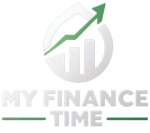The foreign exchange (forex) market is the largest and most liquid financial market in the world, with over $6 trillion traded daily. But for beginners, navigating this fast-paced environment without a solid foundation can be risky. That’s where a forex trading course comes in.
These courses are designed to teach aspiring traders everything from basic forex concepts to advanced strategies. They not only save time and money but also help build discipline—one of the most crucial skills in trading.
In this guide, we’ll break down different types of forex trading education, how to assess course quality, what to avoid, and where to find valuable free learning tools.

Content
Types of Forex Trading Course
1. Online Forex Trading Courses
Online courses are ideal for beginners who want flexibility and self-paced learning. Offered by trading platforms, educators, and financial academies, these courses cover everything from:
- Forex terminology (pips, spreads, leverage)
- How currency pairs work
- Fundamental and technical analysis
- Trading psychology and discipline
Pros:
- Accessible anytime, anywhere
- Affordable options (often under $100)
- Includes video lessons, quizzes, and community support
Cons:
- Self-motivation is required
- May lack personalized feedback
Popular platforms include Udemy, Coursera, and broker-run academies such as IG Academy or XM.
2. In-Person or Live Online Training
Some traders benefit more from live instruction. These can be in-person seminars or virtual webinars that offer:
- Real-time Q&A with instructors
- Walkthroughs of trading platforms (like MetaTrader 4 or cTrader)
- Guided exercises using demo accounts
These sessions may be hosted by professional traders or broker representatives and often complement online material.
3. One-on-One Mentorship Programs
Individual coaching programs provide the highest level of customization. Traders receive:
- Tailored strategy building
- Live trade reviews and corrections
- Goal-based progression plans
However, mentorships are costly—often starting from a few hundred to several thousand dollars. Do due diligence to avoid scams or overpromised results.
How to Evaluate a Forex Trading Course
Choosing the right course can be tricky. Here are some essential criteria to consider:
1. Verify Instructor Credentials
Look for verified trading experience:
- Does the instructor show proof of live trading success?
- Are they transparent about their wins and losses?
- Have they contributed to reputable platforms or publications?
A flashy Instagram profile doesn’t mean they’re a good teacher. Reviews, certifications, and real-world experience are more reliable indicators.
2. Analyze Course Structure
A solid forex trading course should follow a clear path:
- Beginner Concepts – currency pairs, brokers, spreads, lot sizes
- Technical Tools – indicators, chart patterns, time frames
- Risk Management – stop-loss, take-profit, position sizing
- Live Practice – simulated trades or demo accounts
- Strategy Development – backtesting and refinement
Check for downloadable resources, quizzes, and interactive assignments.
3. Watch Out for Red Flags
Avoid courses that:
- Promise guaranteed profits
- Focus more on marketing than education
- Have no refund policy or trial access
- Show only cherry-picked winning trades
A good course educates you, not entices you into unrealistic expectations.
Free Forex Trading Education: Where to Start
You don’t always need to spend money to start learning. Many reputable platforms offer free forex trading courses with high-quality content:
- Broker Academies: Brokers like AvaTrade, IG, and XTB offer free courses and webinars.
- Educational Sites: Babypips.com’s School of Pipsology is a beginner favorite.
- YouTube Channels: Look for content from certified professionals or regulated brokers.
- Trading Forums: Reddit’s r/Forex, Forex Factory, and Myfxbook offer peer support and community feedback.
Even without a paid course, these resources can help build foundational knowledge.
Why Take a Forex Trading Course?
1. Avoid Expensive Mistakes
Many beginners dive in with real money and no plan—often blowing accounts in weeks. Courses teach risk management and help you build trading discipline.
2. Understand Market Behavior
From interest rates to geopolitical events, many forces drive currency prices. A quality course teaches you how to analyze charts, interpret news, and stay emotionally neutral under pressure.
3. Create Your Own Strategy
Instead of copying someone else, good courses empower you to build and test a strategy that fits your goals, schedule, and risk tolerance.
The Bottom Line
Investing in a forex trading course is one of the smartest moves a beginner can make. Whether you opt for a self-paced online class, live mentorship, or free educational hub, the key is to find structured, transparent, and well-reviewed learning paths.
If you run a finance-related platform and want to reach eager learners, you can advertise with us to expand your audience effectively.
Forex trading is not a get-rich-quick scheme—but with the right education, it can become a long-term skill that offers financial growth and independence.
FAQs
Is a forex trading course necessary?
While not mandatory, a structured forex course significantly shortens the learning curve. It provides guidance, proven techniques, and helps avoid costly beginner mistakes.
How long does it take to complete a forex trading course?
Most self-paced courses can be completed in 2–6 weeks. However, mastering forex trading can take months of practice, study, and refinement.

Johnny is a finance blogger who has been blogging for years. He’s familiar with everything that goes into it, and loves to share his knowledge with others.













